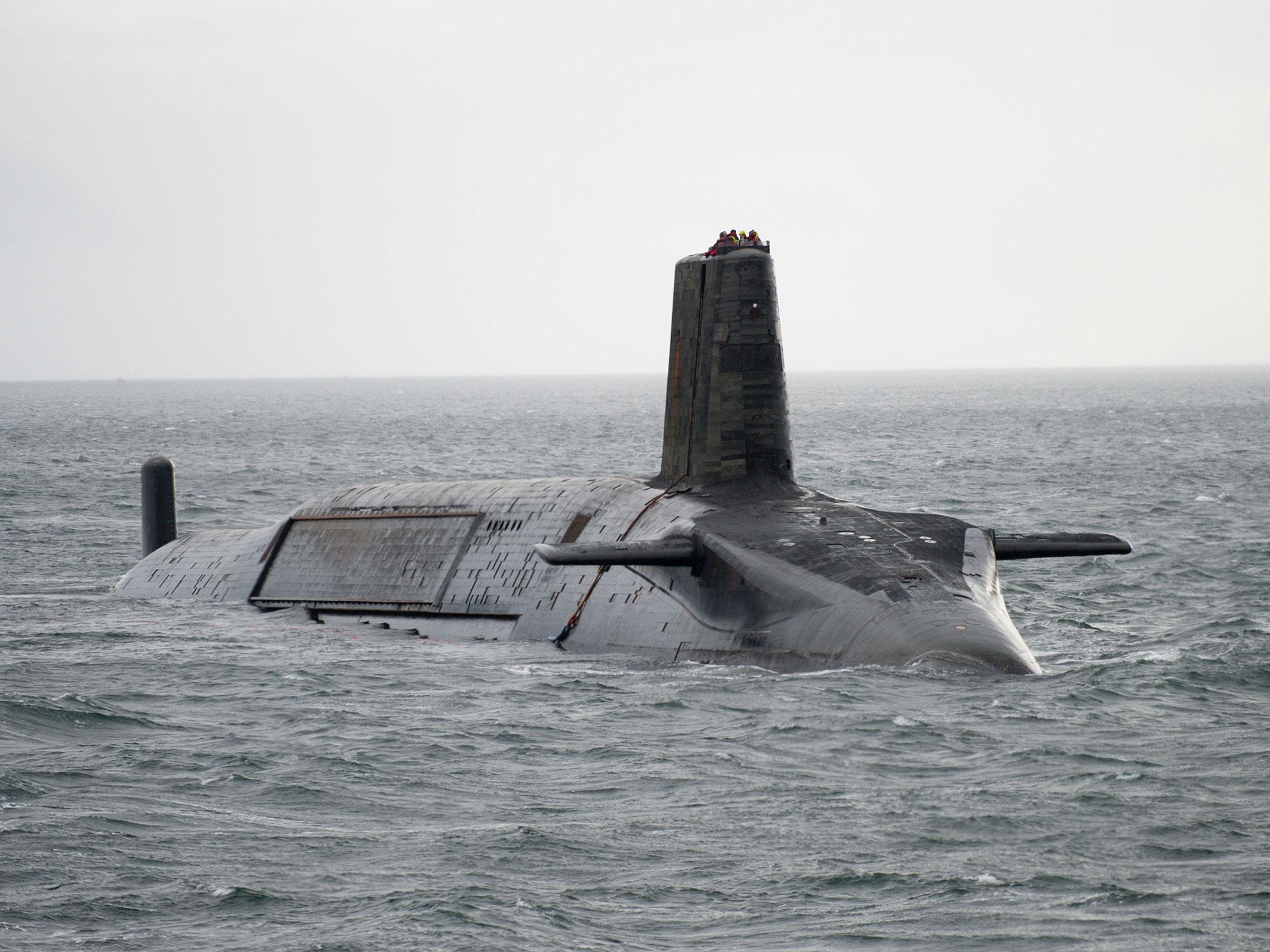UK's nuclear submarines vulnerable to 'catastrophic' cyber attack sparking nuclear conflict, warn experts
Government's claim underwater vessels cannot be hacked is 'false and complacent', report says

Your support helps us to tell the story
From reproductive rights to climate change to Big Tech, The Independent is on the ground when the story is developing. Whether it's investigating the financials of Elon Musk's pro-Trump PAC or producing our latest documentary, 'The A Word', which shines a light on the American women fighting for reproductive rights, we know how important it is to parse out the facts from the messaging.
At such a critical moment in US history, we need reporters on the ground. Your donation allows us to keep sending journalists to speak to both sides of the story.
The Independent is trusted by Americans across the entire political spectrum. And unlike many other quality news outlets, we choose not to lock Americans out of our reporting and analysis with paywalls. We believe quality journalism should be available to everyone, paid for by those who can afford it.
Your support makes all the difference.The UK’s nuclear submarines are vulnerable to a “catastrophic” cyber-attack that could potentially spark a nuclear war, a think tank has warned.
The report, titled “Hacking UK Trident: A Growing Threat” and published by the British American Security Information Council (Basic), said such an attack could “neutralise operations, lead to loss of life, defeat or perhaps even the catastrophic exchange of nuclear warheads (directly or indirectly)”.
The Ministry of Defence claims Britain’s four nuclear Trident submarines cannot be hacked while at sea because they are not connected to the internet – a claim the report authors said was “false and complacent”.
“Submarines on patrol are clearly air-gapped, not being connected to the internet or other networks, except when receiving (very simple) data from outside”, they wrote. “As a consequence, it has sometimes been claimed by officials that Trident is safe from hacking. But this is patently false and complacent.”
Malicious software could be secretly installed on the submarines’ computer systems when they are docked in the UK.
“Trident’s sensitive cyber systems are not connected to the internet or any other civilian network," says the report.
“Nevertheless, the vessel, missiles, warheads and all the various support systems rely on networked computers, devices and software, and each of these have to be designed and programmed. All of them incorporate unique data and must be regularly upgraded, reconfigured and patched.”
The replacement of the Trident submarines is a controversial political issue. Both Labour and the Conservatives have pledged to go ahead with the renewal, but Jeremy Corbyn has repeatedly spoken of his opposition to Trident and his belief in nuclear disarmament.
A cyber-attack on the NHS last month caused widespread disruption across the health service. The hack, designed to extort money from computer users, led to GPs and hospitals cancelling appointments and medical staff forced to use pen and paper for records after systems failed.
Michael Fallon, the Defence Secretary, has refused to deny that the UK's nuclear submarines use the same Windows XP software that was hacked in the attack on the NHS.
Experts have previously warned that Britain's nuclear power stations are also vulnerable to a cyber-attack that could lead to the “nightmare scenario” of radioactive material being released or electricity grids shut down.
Join our commenting forum
Join thought-provoking conversations, follow other Independent readers and see their replies
Comments